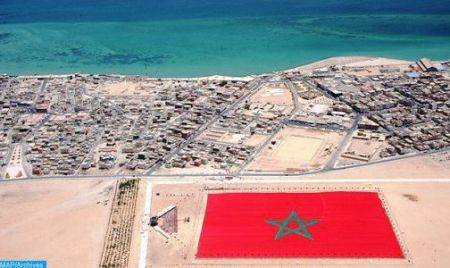47th session of HRC: Renewed and Broadened Support for Territorial Integrity of Morocco
New states have joined the Moroccan Territorial Integrity Support Group in Geneva which presented, on Tuesday as part of the 47th session of the Human Rights Council (HRC), a declaration in which it reiterated its support for the full sovereignty of the Kingdom over its Saharan provinces. In this statement delivered by the Permanent Representative of Haiti in Geneva, Justin Viard, the Group, which now comprises 32 States, once again expressed its support for the peaceful and legal action taken by Morocco in November 2020 to ensure the free civil and commercial movement at the border post of El Guerguarat, linking Morocco and Mauritania, in order to put an end to provocations undermining the free movement of people and goods on this key route between Africa and Europe. The support group also welcomed the opening, by many countries, of Consulates General in the cities of Dakhla and Laayoune, which constitutes a lever for strengthening economic cooperation and investments, for the benefit of local populations, and for regional, and also continental development. The declaration recalled that the Sahara issue is a political dispute dealt with by the Security Council which recognizes the preeminence of the autonomy initiative presented by Morocco as credible and serious solution for a final political settlement to the regional dispute over the Sahara. The resolution of this regional dispute will contribute to achieving the legitimate aspirations of the African and Arab peoples in terms of integration and development, an objective that Morocco continues to aim for and for which it is making sincere and continuous efforts, said the same source. The Group recalled that Morocco has, for many years, been engaged in constructive, voluntary and in-depth interaction with the United Nations human rights system, in particular the office of the High Commissioner for Human Rights (OHCHR), for the promotion and respect of human rights throughout its territory. It also recalled that the Security Council, in its resolutions on the Sahara dispute, welcomed the role played by the National and Regional Human Rights Commissions in Dakhla and Laayoune and the interaction between Morocco and the mechanisms under the special procedures of the United Nations Human Rights Council. The Group also considered that it is important to stress that the interaction of Member States with the Council and the High Commissioner must retain its bilateral aspect and be protected from any instrumentalisation, which generates counterproductive political debates within the Human Rights Council.

